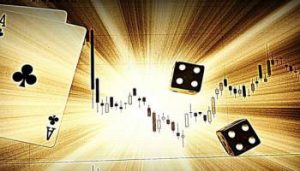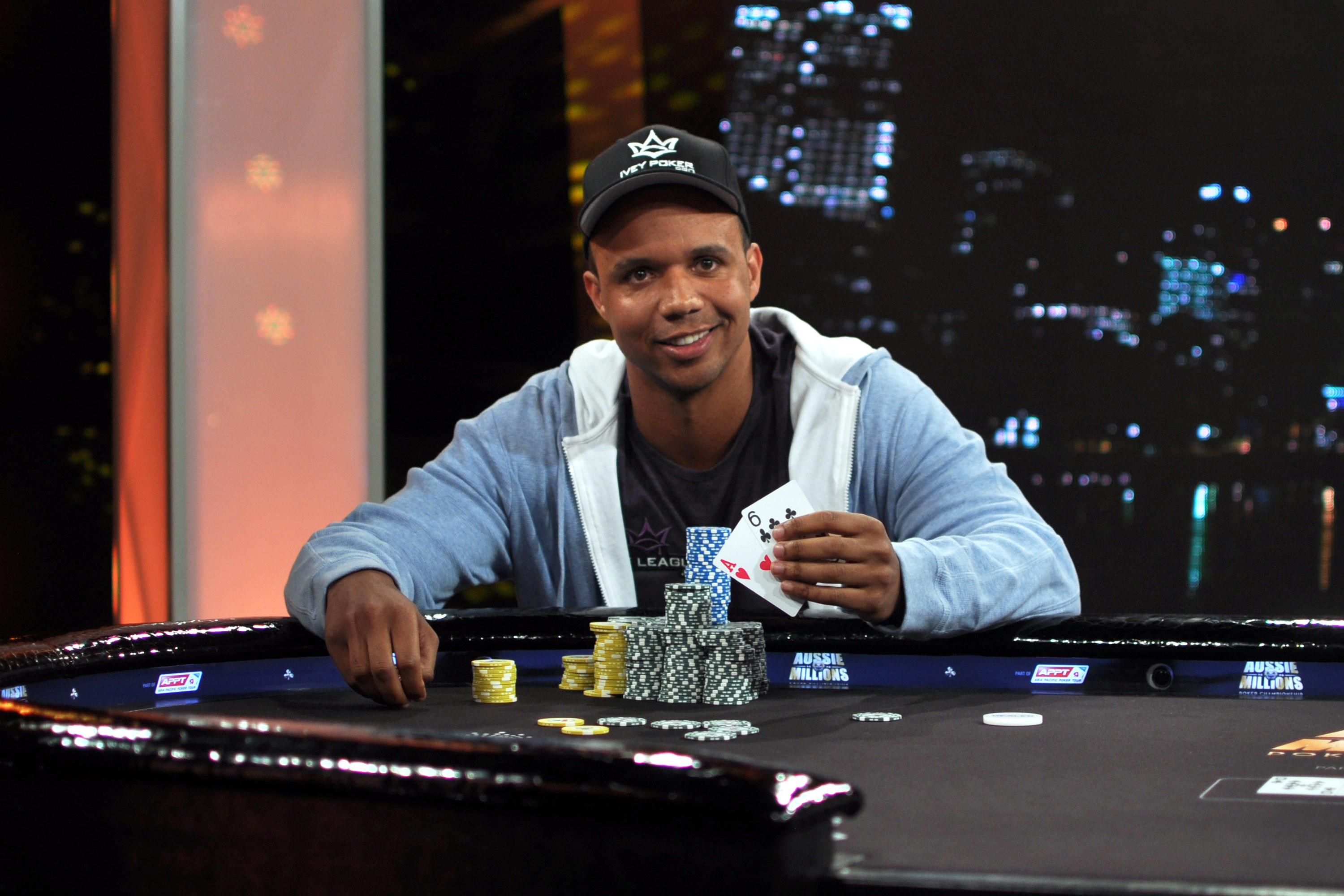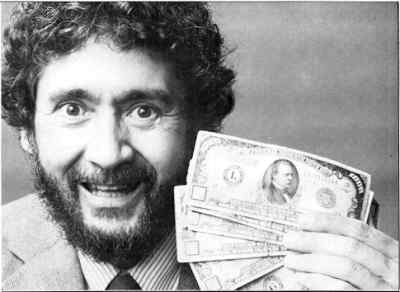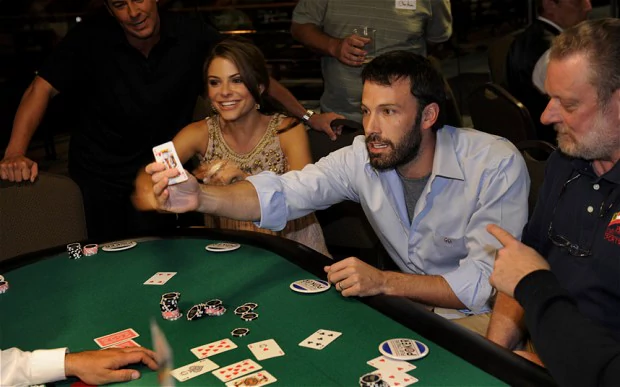Wall Street versus The Strip. Stock markets versus the roulette. Hedge funds versus the house edge. Speculative investment versus a prayer to your lucky odds. An honorable profession versus a pastime of ill repute. What are the differences between gambling, trading, and betting? Is there a gray area of definition where the three overlaps, trading in more similarities than stockbrokers care to admit?
Or, as investors like to reiterate every time an article of this kind dares to tackle the issue throwing wolves on Wall Street in the same bucket with Atlantic City pokie pushers. Risky financial transactions reign over the chaotic toss of the dice of the casino like a royal flush over a full house.
Is trading the same as gambling? Is Wall Street a coin toss?
The debate of whether gamblers and traders can play at the same table has caused heatwaves of controversy ever since the advent of the Indian Gaming Regulatory Act in 1988. So we couldn't very well miss on an opportunity to jump right at the burning core of the two seemingly contradictory money philosophies.
According to an old definition from the 1500s, trading in securities in order to produce money is called “playing the market”. Even by the standard of the times, investments involved the risks of a game of high stakes.
In the end, in honest pondering over the differences between gambling, trading, and betting and following a back-breaking movie marathon (from the disturbing American Psycho to the methodic Hard Eight) that left us potbellied with popcorn and green dollars signs for eyes, we hit an unexpected conclusion.
Is trading the same as gambling? One look at their common goal and the answer leans towards a resounding YES.
Risky business. Or the pursuit of immediate gratification
Fixed annuities and government bonds held to maturity are pretty much the only safe investments traders can deal in.
In all other respects, investing and casino gaming both pursue the same goal: to minimalize risk while maximizing profit.
One difference between trading, gambling, and betting would be the unwillingness of the trader to go all in while the gambler can afford to cut himself some slack and give in his finances to a suicidal all in.
The principle of randomness
Let's give the floor to Matthew McConaughey and, respectively, Matt Damon. The former achieved legendary status by pounding his chest to the rhythm of an Indian rainmaker (show me the money style) while the latter managed another Good Will Hunting performance, this time his genius spilling in spades around a backroom gambling table.
“OK, first rule of Wall Street - Nobody - and I don't care if you're Warren Buffet or Jimmy Buffet - nobody knows if a stock's going up, down or sideways, least of all stockbrokers. But we have to pretend we know.”- Mark Hanna, Wolf on Wall Street
Can you see the first rule of Wall Street ingrained in the randomness of a casino gain that is the defining principle of gambling? If yes, we rest our case.
Randomness can be the source of how your life turns out. You're spilled into this world with an accidental selection of genes and told to make the best of them.
Armed with whatever DNA-munition nature bestowed on them, some try their luck on Wall Street, others take the road to Nevada. And it appears all the roads lead to Rome- or the principle of randomness.
According to the random walk hypothesis, the stock market's asset prices grow legs haphazardly and evolve unpredictably.
Conspiracy theorists will be disappointed to know that economy is not a tool that can be manipulated by a Reptilian elite, but much closer in definition to a lottery game.
Slot machines, which generate about 70% of a casino's income, operate under a similar Random Number Generator (RNG). The microchip brain of the pokie, the RNG, whirls like a dervish humming top to several billion hundreds of times per second.
While you get a kick at all those near misses spinning the illusion of a jackpot, the casino operators get wealthy.
Money never sleep in Monopoly town
Neither does the flow of cash, credit cards, cheques, stocks, and bitcoins stop in Wall Street or Las Vegas, Dubai, Macau, Monte Carlo and other casino hotbeds of the world.
“I've often seen these people, these squares at the table, short stack and long odds against them. All their outs gone. One last card in the deck that can help them.” - Mike McDermott, Rounders
Mike McDermott's words in “Rounders” send to an image of society's nocturnal animals, the outcasts, misfits and eccentrics that populate both the sweaty backrooms of gambling venues, the noisy queues filling in front of a horserace betting booth, and the bull market where derivatives are exploding and everybody is making and breaking money no one can afford.
Hence, Occupy Wall Street, that den of glass buildings and glassy-eyed traders, credited with having pushed the US (and, consequently, the world) down the road of financial ruin by way of its notorious bailouts (irresponsible bank executives being offered a lifeboat from the government), the American psycho mentality, and sheer love for the game.
The global movement that took root in Zuccotti Park in 2011 didn't disappear off the protest chart once the last occupiers left for their homes.
On the contrary, echoes and spin-offs still pay tribute today to the 1% who suffers from economic inequality. As part of her presidential campaign, Hillary Clinton compared the stock market to a gambling venue, declaring that “the deck is still stacked in favor of those at the top.”
The philosophy of money is the bridge that ties The Strip to Wall Street, Atlantic City to Macau, gamblers to investors.
Boy's clubs in a women's age
In her book, Lean In, Sheryl Sandberg notices the gender disparities on Wall Street. Young women will not receive the same mentorship and opportunities as men, she argues.
In support of her claim stands the Charging Bull on Wall Street, seen as an aggressive symbol of hypermasculinity, the belligerent cries on the blood-hungry stadium that is the stock market, and Christian Bale in American Psycho.
A recent study with a catchy title, “When Harry Fired Sally: The Double Standard in Punishing Misconduct”, shows that the financial advisory industry's discriminatory stance against women is not a fleeting impression.
Investment companies, always in a patriarchal mood, will punish women who engage in misconduct much more harshly than men, even though the latter category is more prone to step out of line.
The difference is one of gender perception. While men get away with misconduct because they are considered “driven warriors”, women are labeled “defiant bad girls.”
Now move the gender discrimination argument into the casino landscape, and you'll have already populated it in your mind's eye with men. Gambling venues aren't perceived as a woman's world.
In the 18th century, games of chance such as faro or poker carried an unfortunate stigma. They were believed to cause bad health to pregnant women and disturb their offspring in the early development stages.
Only a few centuries later did the popularity of online gambling open doors for women who had been previously kept on the fringes of the casino, either as hot dealers at the poker table or atmosphere makers.
And while the female gender is a segment of value in the gaming industry, you'll only have to leaf through the lists of casino executive directors and other high-level jobs. The odds of a woman making it in a boy's club run as high as in the raging bull market.
But what about the odds of a man?
Going all-in on the odds
What are the odds? The Fates, Schrödinger's cat, Karma, a coin toss, a throw of the dice, a Californian game, or simply a ratio of probabilities and favorable to unfavorable outcomes? A case can be made for all of them.
Where odds are concerned, anything can happen. The same principle runs through the stock market and the gambling venue.
“An investment is simply a gamble in which you've managed to tilt the odds in your favor.", Peter Lynch said.
If that's the case, traders succeed where gamblers fail. They can interpret trading patterns and charts, old maps and digitalized forecasts. On the other hand, the coin toss can be said to rule on Wall Street as much as in the casino.
Investment companies can't predict futures, calamities, and political upheavals. A completely understandable shortsightedness unless you own a time travel machine.
Moreover, traders will either sell short, get hurt on commissions or speculate beyond their means.
And while investing and trading can be a losing bet, gambling could glide over to be a winning dice.
You can turn the odds in your favor by counting cards (unobtrusively, perhaps?) or reading into the psychology and mannerisms of your fellow poker players. Also, there are casino games that offer the punter better odds. Craps, blackjack and baccarat make it to the top three.
The House always takes its cut
In this respect, is investing the same as gambling or betting? Both trades share a kinship that centers on free market itself. Individuals on both sides of the casino and stock market industries are a fantasy generated by this very same market. Once in, you can't exist outside it.
This market is the house. It may, from time and time and in its self-interest, reward its players with the “big fish”, that alluring big catch that traders and gamblers alike seek in order to gain financial lifetime security.
The house will chip a bit of its edge just to keep the high-rollers rolling billion-dollar sums in their casinos. They need a steady stream of punters.
However, the house/ market always wins the edge. It cannot afford those high losses so it prefers to pile them up as collateral damage on its players. Or, as Karl Marx once said, “Capitalism will always produce its own gravediggers.”
Compulsive trading, addictive gambling
Gambling addiction has received official recognition in the 1980s, a status that also translated into the birth of a much-needed organization, Gamblers Anonymous.
On the corner of Wall Street, however, you won't come across a help desk of the Investors Anonymous. There isn't one in the Yellow Pages, neither. But society's willful blindness doesn't mean traders don't deal in a specific brand of drug- seedy and ruthless ambition.
Certain signs will point to an addicted trader:
- The investor can't stop committing capital. He will display certain traits, such as an increased appetite to spend hours in front of a computer, insomnia, and monotonous conversations where the only topic at hand is the ups and downs of a stock.
- On the other hand, the trader might be furtively keeping that ever watchful eye on his transactions without telling his family and friends. The individual will be hiding his trading activity while indulging in ever riskier, short-term bets. Sorry, we meant to say investments.
- Obsession and denial. Secrecy and solitude. And, last but not least, withdrawal symptoms. Make a trade stop and see what happens. It's the ultimate addiction test. If the individual displays a reactionary mood, throws a tantrum, expresses cravings, poor focus, bouts of anger and resentment, and finally depression, he must have been an addicted trader on his way now to recovery.
Why do the differences between gambling, betting, and trading matter?
For a clear legislation and regulation of both industries, gambling and betting, lawmakers need to embrace the first principles of the market, which involve definition and disclosure.
That is why regulators insist on clear-cut differences and tangible discrepancies between gambling, betting, and trading.
To them, all those similarities mentioned above employ a metaphysical or psychological angle that fits well in the gray area of things. But the dice is meant to separate the black from the white.
Below we've tossed in a few key differences between trading and gambling. After all, even identical twins forge separate paths in life.
- Stop losses. Investors can put the brakes before their capital drops below the purchase price by setting stop losses. If you place a bet on a sporting event and not win, your money is as good as fairy dust. Invisible and with zero purchasing power.
- Gambling is short-term. Investments can take years to mature and wise traders cultivate a certain patience in gathering the fruit of their labor. On the other hand, a gambler nurtures a despotic nature. It demands instant gratification at the push of a button. A run at the baccarat table is time-bound, only as good as the money holds.
- Investors cherish that safety net called the dividends. Companies who are willing to pay dividends also share in the proverbial peace pipe with their investors as they will hold on to their stock regardless of the market's fluctuations.
- Diversification is another type of shock absorber investors can rely on in case financial crash rolls down the hill. They can spread their investments across different verticals so if one fails, another balances the loss.
Conclusion: Is sports betting considered gambling?
In the words of an old saying, “It's double the giggles and double the grins, and double the trouble if you're blessed with twins.”
The economic environment of the present day has cleared the floors and made room for both mixed blessings: the professionals and the troublemakers, the wins and the losses, gambling and trading alike.
To the untrained eye, the two industries might make strange bedfellows, but seasoned and dedicated punters will rely on judgment and technical analysis to make a living from sports betting while reckless traders will know no qualms in risking their career and others' capital on a crazy morning hunch.
In this light, cutting across the token differences between gambling, trading, and betting, these money-centered industries exist on a common goal platform. To call hard-won money a bluff. To bet on the easy money. And to freely admit, in the words of a Japanese writer, to “the namelessness of money, its breathtaking interchangeability.”



















